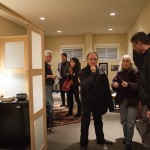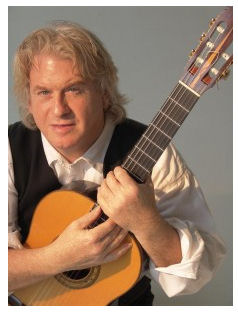
Michael Lorimer
I am very excited and honored to inaugurate my Fireside Chat series with guitarist Michael Lorimer favorite protege of Andres Segovia. Mr Lorimer will be joining the Kritzer Studio via SKYPE on Sunday, March 18th at 3:00-4:30 pm for an open discussion initiated by
your questions. What a fantastic opportunity to discuss the lifetime of achievement of one of America’s top guitarists, someone who helped propel the guitar to the prominence it enjoys today. Learn what it was like studying and traveling with Andres Segovia, his work with composers and guitarists, how he approaches arrangements, his thoughts on the state of the classical guitar. This is open to Subscribers of this website but seating is limited so please reserve your spot ASAP if you’d like to be present! Simply Subscribe to this site (if you haven’t already) and go to
Contact to let me know.
I’d suggest reading my post My Experience Studying with and Assisting Master Classical Guitarist Michael Lorimer
Arrive no later than 3:00 pm (the studio will be open 15 minutes prior) and we’ll watch a few Lorimer Videos and then log on with Michael from New York City.

Kritzer Studio
So post some questions here that you’d like to ask! I’ll pick a few that will help get our discussion rolling on the 18th.









Question: What have you discovered lately about playing guitar?
Question: I understand you have a new edition of your transcription of the Bach 1st Cello Suite. What prompted you to revise your previous work, and do I need to get the new edition?
Question: How do you compare the current crop of world class guitar players compared to the group you came of age with?
Question: People often criticize the quality of the guitar repertoire compared to other instruments. Clearly the guitar repertoire will never approach that of the piano and the violin, but are today’s composers narrowing the gap? Whom do you like?
Question: Please tell us some Segovia stories that help us understand what he was really like.
Question: Please tell us how Segovia taught you.
Wow- great questions Tom!
Scott
Q: What things can the typical amateur guitarist do to most improve his/her playing? That is, do you find amateurs generally have, say, poor LH technique, or they should spend more time analyzing or understanding the music, or …?
Q: What do you think about the general CG pedagogy today? Likes, dislikes?
Q: Do you have a favorite guitar, or are they all “just some old bits of wood glued together..”
Q: Are all Scott’s stories true?
And Scott, are you going to record the session?
Michael:
You and I have swapped coasts. I’ve been out here in Portland for 4 years but get back to NYC at least once a year. A non-guitar question…… Have you been up on the Highline yet? Also, have you come across Gyan Riley (guitarist) in NYC?
I can answer the last one Charlie, yes!
1. Mahler’s 3rd symphony has become my favorite work and was recommended by you. What does this symphony mean to you? Why is it so special in your opinion?
2. Who is your current favorite guitar maker? What process do you use to select an instrument?
3. What was your favorite personal performance and why?
Wow, what a fantastic afternoon with Michael Lorimer. I was excited to hear about how he came to know about and eventually work with Segovia. His first lesson, his first meeting.
Also fascinated to hear about his encounter with Stockhausen and the interpreters of the baroque era.
I guess I was excited to hear more about his approach to arranging baroque music for the classical guitar, (a selfish quest as I prepare to record a CD’s worth of Lorimer arrangements). Most interesting was the reason for the noticeable increase of slurs in his new arrangements and re-arrangements of his older arrangements. I got that it was part of the un-equalness required in what appears to be regular rhythms. I love the story about Leonhardt describing the difficulties of slurring on the harpsichord, the concept of holding one note down, into the other, and his envy of how easy it was to do on the guitar.
Also, the trills – shorter trills were the order of the day for lutenists.
Expound? Let me know what you thought!
Let me say that it was truly a great event. I almost had to miss it. Very glad I did not. Lorimer is not only a fascinating guy to listen to, but truly a historic figure in the guitar world. Loved his stories, loved his comments about the current guitar world (and current music world) and his remarks about transcribing Baroque music had me listening very carefully, even if it was technical. One intriguing take away for me was the idea that if you are playing a transcription from music for another instrument you should use ornaments (and how many other things?) appropriate to the guitar and not to whatever instrument the music was originally written for. As sort of an illustration of this Lorimer noted that when Bach took one of his Cello pieces and trancribed it for Organ, he did not just port it over but instead rewrote it entirely as an Organ piece.
OK, I have Scott’s permission to make my one complaint (not saying I wouldn’t complain even without his permission). As the only person their with significant hearing loss I have to say Scott’s studio needs a really great sound system. I could hear Lorimer ok, but would have liked a bit more volume. The Lorimer music that was played before he came on was unintelligible to me. Can you imagine a professional musician who is not extremely picky about good sound reproduction??.
Thanks to Scott for a great event. Hard to imagine anyone other than him putting together this unique experience.
The Bach work I think Michael was referring to was the well known Fuge in A minor, (originally written for violin and later arragned by the composer for lute and organ).
It surprises some people but most musicians I know are not audiophiles…but I guess I could have a pair of speakers hooked up somewhere. A nice little iPhone stereo would be nice.
I agree Lee – what a great opportunity, I learned a lot!!
I was also fascinated by Lorimer’s discussion of transcribing a work. Using the example of one of Bach’s cello suites, he said that a guitar transcription should be so well done that a cellist would be jealous. To slavishly transcribe and play a work note for note on another instrument is not what Bach did, and is not what should be done today. The transcriber should take advantage of the idiosyncrasies of the instrument for which he is transcribing.
Lorimer told the story at one point of using his downtime while serving on a grand jury to transcribe a number of Weiss sonatas for guitar, and said that he had done about 40 of Weiss’s 600 some sonatas in all. He says that even today, he considers them to be quite good. I’m aware that he has published two of them, but would love to see some of the others.
Thanks, Scott, for arranging the event, and thanks, Michael, for making it so worthwhile to participate.